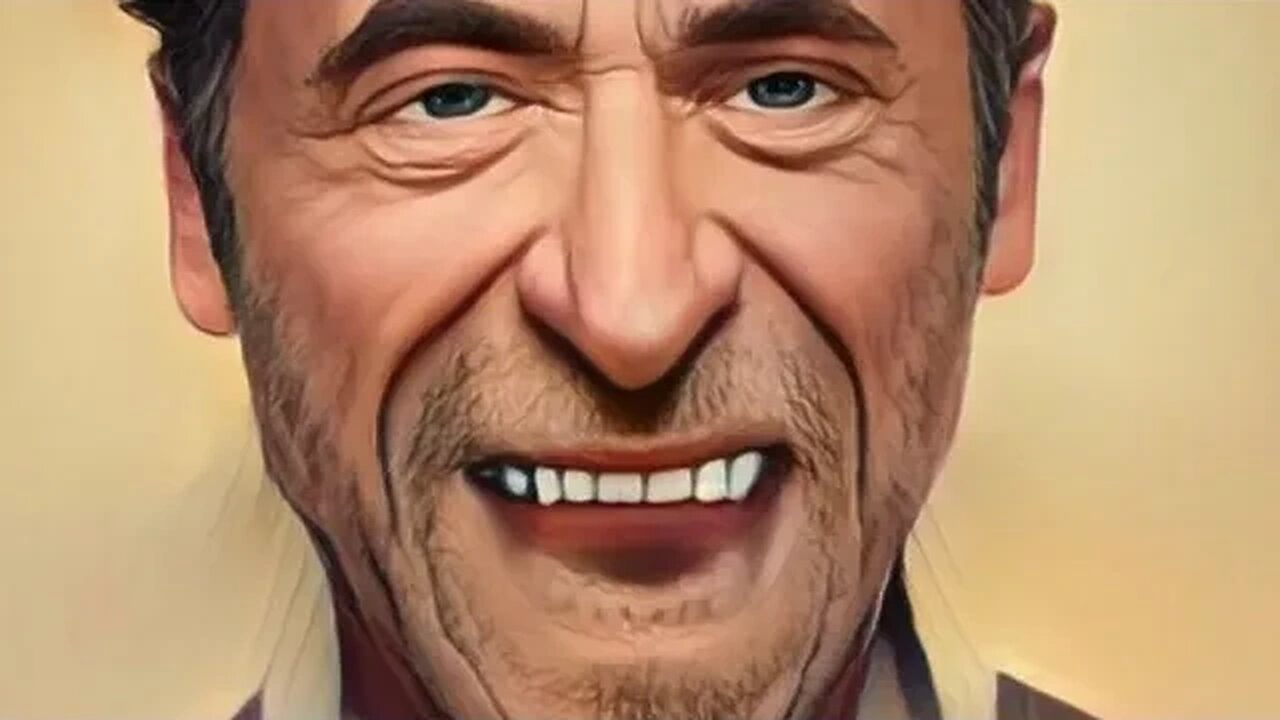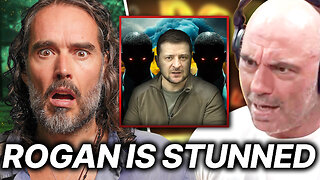Premium Only Content

Charles Bukowski: Don't Try
Charles Bukowski, American Author Prolific and influential 20th-century poet, short story writer, and novelist.
Charles Bukowski was born in Germany, shortly after World War I, to a German mother and American soldier father. When he was two years, eight months old, his parents put him on a ship and brought him to the United States, where they settled in Los Angeles, California, near the father's family. Shortly after America joined World War II, Bukowski left Los Angeles, traveling to various cities around the country, spending the bulk of his time in Philadelphia and New Orleans. In 1947 he returned to Los Angeles, where he lived for the remainder of his life.
While "on the road," Bukowski was published for the first time in Story magazine. The year was 1944, and he was 24 years old. At that time he was primarily a short story writer who only occasionally wrote poetry. But a decade later, in 1954, that would change after Bukowski suffered an internal hemorrhage and spent nine days on the cusp of death in Los Angeles County Hospital. After that experience, he began writing much more poetry and quickly became one of the most unique and influential voices in 20th-century American poetry.
Ultimately, Bukowski is perhaps more well-known for his novels, such as Post Office, Factotum, Women, and Ham on Rye than for his poetry. But even while he was working on novels he continued to write poetry and short stories. In fact, at the time of his death in 1994, Bukowski had written over 5,300 poems and stories. And those are only the titles that we know of. There were likely hundreds more that were written—and subsequently lost—in the 1940s, 50s, and 60s, before he began keeping copies of his work.
Film adaptations of Bukowski's books
In 1979 Bukowski began writing the screenplay for what would become the film Barfly. After years of delays and wrangling, the film was eventually made by Barbet Schroeder with Mickey Rourke and Faye Dunaway in the leading roles. Bukowski wrote about the experience in his funny, underrated novel Hollywood. The same year, 1987, a Belgian film was released based on Bukowski short stories called Crazy Love. Other film adaptations of Bukowski's work include the Italian film Tales of Ordinary Madness, starring Ben Gazzara, and Factotum, with Matt Dillon taking his turn playing Bukowski.
While working menial jobs, such as a door person, and dangerous factory jobs like loading globs of rubber into cutting machinery, he spent most of his money on printing manuscripts and stamps to send his work to publishers. He became disillusioned with the publishing industry, and for almost ten years, he wouldn’t write or have another piece published. His experience working various menial and manual jobs would be the basis for many of his characters and perspectives in later written works.
Around 1946, he nearly gave up on writing entirely. For the next ten years, he focused on maintaining employment and wrote little, if anything. He immediately began writing poetry after a near-death experience due to internal bleeding and massive blood loss. His near-fatal illness changed him, and he began to write thousands of poems. He became known for his simple, straightforward, and unadorned style that contrasted with the flowery and ornate popular image of poetry.
Bukowski began submitting poems to smaller magazines such as Quixote, The Naked Ear, and Harlequin, the latter of which he started a correspondence with then editor and poet Barbara Frye. They agreed to marry in 1955 but ultimately divorced in 1958. After she died in India under mysterious circumstances, he would start drinking heavily again. He continued to write poetry, with these personal experiences often featuring in his work.
After his father died in 1958, he spent some time going through things at his childhood home but ultimately sold the house. He then heard about the death of his first girlfriend, Jane Cooney Baker, which affected him deeply. His drinking became more severe, according to his girlfriend at the time, Frances Smith. All these events occurring within a few years would prominently feature in and inspire Bukowski to write more poetry.
After having many poems published in small literary magazines, E.V. Griffith of Hearse publishing noticed and agreed to publish a chapbook titled “Flower, Fist and Bestial Wail” in 1960. This was a monumental occasion for Bukowski, who finally had his first book published at 40 years of age.
The aftermath of Bukowski's death
After Bukowski's death in 1994, Black Sparrow Press continued to release new poetry collections every year or so. Unfortunately, those collections suffer from comprehensive—and inexplicable—editorial tampering, which has the overall effect of making the posthumous collections appear as if they were comprised of lesser works. When reading Bukowski's original manuscripts, however, it becomes clear that it is the changes made by Bukowski's then "editor"
-
 1:00
1:00
Literati
1 year agoAwakening
81 -
 10:42
10:42
Russell Brand
2 hours agoJOE ROGAN IS SPEECHLESS
15K45 -
 1:36:20
1:36:20
The Quartering
5 hours agoCybertruck Psyop? Fishy New Orleans Video & FBI BUSTED In Major Coverup!
49.5K31 -
 2:08:45
2:08:45
Tucker Carlson
4 hours agoBernard Hudson: New Orleans Attack, Cybertruck Explosion, CIA Corruption, & Tusli Gabbard
144K128 -
 8:33
8:33
Chef Donny
2 hours agoWarm Up With Some Delicious Wild Rice Soup| Tasty Tailgating Ep. 16 Presented By Pepsi
8.42K3 -
 9:35
9:35
SLS - Street League Skateboarding
10 days agoHow Sora Shirai Won SLS Tokyo 2024 | Best Tricks
5.74K2 -
 LIVE
LIVE
GingerDonkey
4 hours agoThe DONKEY Barn is open for business
418 watching -
 40:12
40:12
jessedalba
17 hours ago $0.76 earnedRumble Movie:“Riding an Electric Harley 2,500 Miles to Sturgis… What Could Go Wrong?!”
18.7K9 -
 10:22
10:22
Dr Disrespect
3 days agoDR DISRESPECT - 2024 RECAP
60.6K78 -
 18:03
18:03
Neil McCoy-Ward
7 hours agoThe US 'INCIDENTS' Are just The Tip Of The Iceberg...
19.5K6